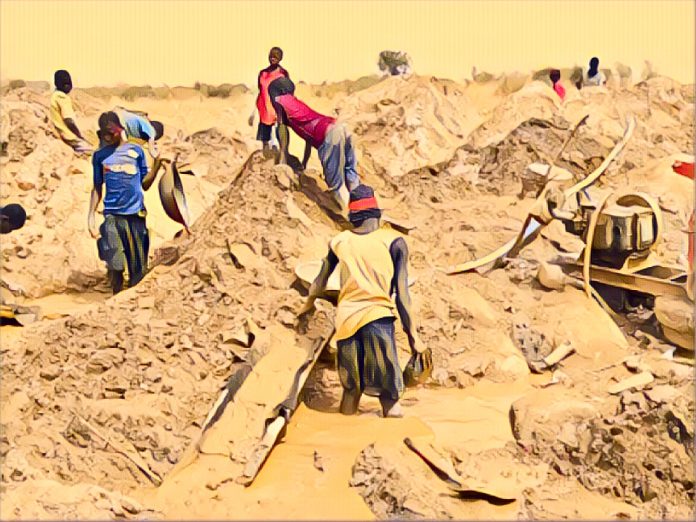KEY POINTS
-
Illegal sand mining leads to severe environmental degradation in Nigeria.
-
Aquatic ecosystems and local communities suffer due to unregulated sand extraction.
-
Strengthened enforcement and sustainable practices are crucial to address the issue.
Illegal sand mining has become a pressing environmental issue in Nigeria, leading to severe ecological degradation and socio-economic challenges.
This illicit activity involves the unregulated extraction of sand from rivers, beaches, and land, often resulting in detrimental consequences for the environment and local communities.
Environmental degradation from unregulated sand extraction
The unregulated extraction of sand from its natural boundaries results in bank instability, which subsequently leads to higher erosion rates and diminished land areas.
Fertile lands encounter degradation from sand mining which produces direct threats to agricultural activities.
Sand mining has negative impacts on coastal and inland erosion, occurring largely from direct sand removal from beaches, mostly through illegal sand mining.
Threats to aquatic ecosystems
Illegal sand mining disrupts aquatic habitats, leading to a decline in biodiversity.
The extraction operations cause water turbidity to rise so light cannot penetrate properly, thus impeding aquatic plant photosynthesis.
Water turbidity changes from extraction operations can result in the death of fish together with other aquatic species.
Studies show that sand mining operations destroy economic opportunities and makes people evacuate their residences.
Socio-economic impacts on local communities
Communities relying on rivers and coastal areas for their livelihoods face significant challenges due to illegal sand mining.
Increased environmental deterioration causes reduced fish numbers along with degraded water quality that simultaneously affects food supplies and monetary income.
Additionally, soil erosion leads to territory displacement and damages home properties.
Surrounding water levels decrease because of sand extraction activities, leading to depletion of river embankment water sources.
Legal and regulatory challenges
Current regulations to stop illegal sand mining face poor enforcement in Nigeria.
The lack of budget and administrative corruption hinders proper monitoring and control systems.
Active regulation is required for stopping ongoing illegal operations, which both heightens environmental damages and interferes with legally permitted mining activities.
Insufficient funding prevents the Nigerian government from executing legal prohibitions against illegal mining activities.
Steps towards sustainable sand mining practices
The resolution demands a combination of several strategies to properly address it.
Better regulatory body enforcement depends on boosting operational resources to monitor and control sand mining activities.
Local public education about environmental effects from illegal sand mining will produce community-monitoring activities, which combine with reporting capabilities.
Furthermore, the promotion of substitute construction materials helps minimize natural sand requirements for building purposes.
Multiple organizations perform restoration work by planting trees and doing land reclamation for environmental recovery.
In conclusion, the practice of illegal sand mining threatens Nigeria’s environment and local population health in a significant way.
The elimination of illegal sand mining practices and sustainable practices requires strategic cooperation between government bodies, local inhabitants and industrial operators.



